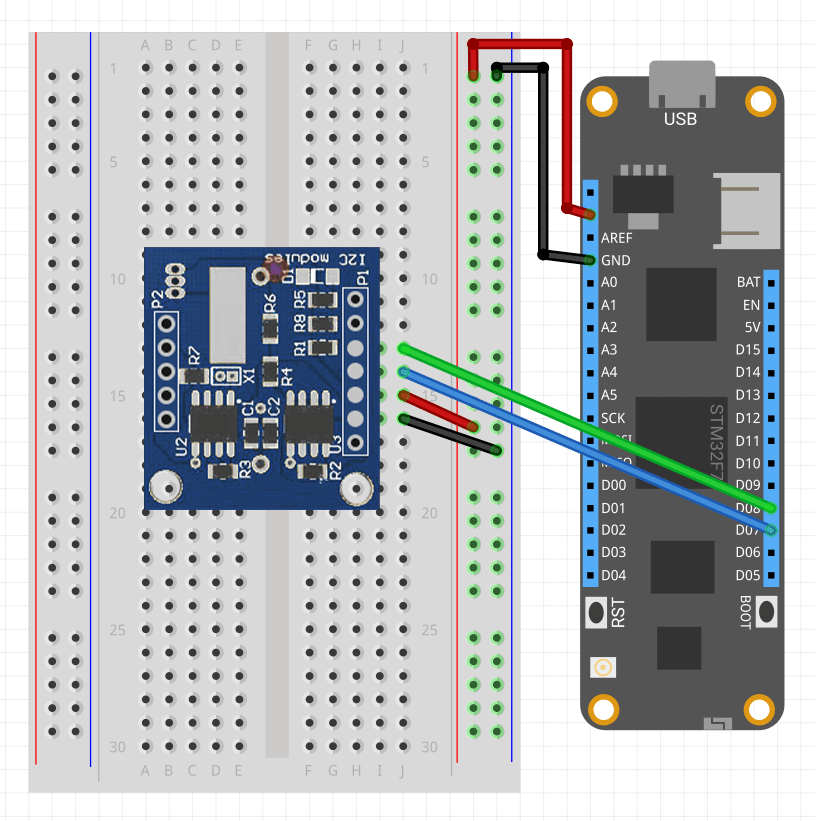Meadow.Foundation.RTCs.Ds1307
| Ds1307 | |
|---|---|
| Status |  |
| Source code | GitHub |
| Datasheet(s) | GitHub |
| NuGet package |  |
The DS1307 is a low-power realtime clock (RTC) controlled via I2C.
Code Example
private Ds1307 rtc;
public override Task Initialize()
{
Resolver.Log.Info("Initializing...");
rtc = new Ds1307(Device.CreateI2cBus());
return base.Initialize();
}
public override Task Run()
{
var dateTime = new DateTimeOffset();
var running = rtc.IsRunning;
Resolver.Log.Info($"{(running ? "is running" : "is not running")}");
if (!running)
{
Resolver.Log.Info(" Starting RTC...");
rtc.IsRunning = true;
}
dateTime = rtc.GetTime();
Resolver.Log.Info($" RTC current time is: {dateTime.ToString("MM/dd/yy HH:mm:ss")}");
Resolver.Log.Info($" Setting RTC to : {dateTime.ToString("MM/dd/yy HH:mm:ss")}");
dateTime = new DateTime(2030, 2, 15);
rtc.SetTime(dateTime);
dateTime = rtc.GetTime();
Resolver.Log.Info($" RTC current time is: {dateTime.ToString("MM/dd/yy HH:mm:ss")}");
var rand = new Random();
var data = new byte[56];
for (int i = 0; i < 56; i++)
{
data[i] = (byte)rand.Next(256);
}
Resolver.Log.Info($" Writing to RTC RAM : {BitConverter.ToString(data)}");
rtc.WriteRAM(0, data);
Resolver.Log.Info($" Reading from RTC RAM : ");
data = rtc.ReadRAM(0, 56);
Resolver.Log.Info(BitConverter.ToString(data));
return base.Run();
}
Sample project(s) available on GitHub
Wiring Example
The DS3231 real time clock module (see image below) requires only four (for simple timekeeping) or five (for alarms) connections
| DS3231 | Meadow Pin |
|---|---|
| GND | GND |
| VCC | 3V3 |
| SCL | D08 (SCL Pin) |
| SDA | D07 (SDA Pin) |
The 32K pin outputs the 32,768 Hz clock signal from the module. This signal is only available when power is supplied by Vcc, it is not available when the module is on battery power.
